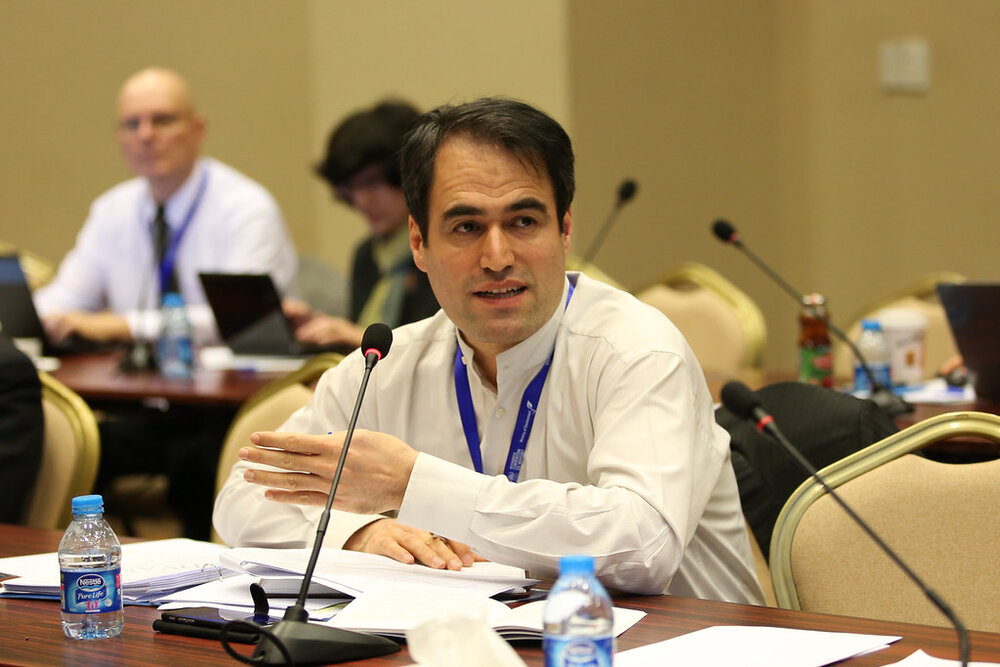Iran voices support for UN program to combat illegal arms trade

TEHRAN – The Iranian Permanent Mission to the United Nations has expressed support for a United Nations program that aims to galvanize nations in combating the illegal arms trade.
In a statement by Heidar Ali Balouji, First Counselor of the Permanent Mission of the Islamic Republic of Iran to the United Nations at the Eighth Biennial Meeting of States to Consider the Implementation of the Programme of Action to Prevent, Combat, and Eradicate the Illicit Trade in Small Arms and Light Weapons in All Its Aspects (PoA), Iran expressed hope that nations “will draft an outcome document that is in line with the mandate and competence of the BMS [Biennial Meeting of States] that can both reach consensus and stay clear of any controversial issues including secondary topics or synergies in the context of the PoA.”
Under the PoA, governments agreed to improve national small arms laws, import/export controls, and stockpile management – and to engage in cooperation and assistance.
In 2005 they also adopted the International Tracing Instrument (ITI), which requires States to ensure that weapons are properly marked and that records are kept. Moreover, it provides a framework for cooperation in weapons tracing – fulfilling one of the commitments governments made in the Programme of Action. Improving weapons tracing is now part of the 2030 Agenda for Sustainable Development.
“We fully support the POA; its effective, complete and non-discriminatory implementation as a political and voluntary instrument, can contribute to combating illicit trade in SALWs [small arms and light weapons],” Balouji said in the statement. “Therefore, we have taken several key steps, including through adopting six acts and laws by the Iranian council of ministers as well as the Parliament.”
He added, “In order to enforce those regulations, we have taken concrete measures regarding manufacturing, marking and exporting SALWs. Therefore, systematic marking on SALWs is an integral part of the production process. Furthermore, some of those measures include long-term record-keeping of SALWs production and assignment, complete destruction of collected or confiscated SALWs, regular visits to stockpiles, manufacturing under government control and, receiving a mandatory end-user certificate from the importing States. We have an Action Plan to collect illicit SALWs and stop their trafficking as well as security and disciplinary procedures related to SALWs. Additionally, we convene programs aimed towards education and raising awareness on the dangers and detrimental impacts of the illicit trade in SALWs.”
He noted, “In addition to the implementation of action plans to counter terrorist elements, identifying and combatting arms trafficking gangs along with the intensification of border controls to counter terrorism as well as the illicit trade and trafficking of SALWs have all contributed to the detection and seizure of more than 40,000 illicit weapons in 2020-21.”
The Iranian official said, “Since 2017, we have organized four joint meetings on the security of SALWs and concluded a number of security cooperation agreements with and neighboring as well as regional countries. The Ministry of Defense is the National Point of Contact on SALWs. A national committee on SALW was also created for policy-making, examining related issues, coordinating national measures and preparing national biennial reports.”
He stated, “A number of Iranian officials have participated in Interpol meetings and training courses, and we are cooperating with Interpol to detect and arrest SALWs traffickers. All of our activities have been explained in our national report that we have submitted already. Finally, while emphasizing on the effective, complete and comprehensive implementation of POA, we would like to underline the importance of exchanging information and experience; preventing the production and trade in replica guns capable of transforming to lethal weapons; and facilitating the transfer of technology and equipment necessary to combat illicit trade in SALWs to developing countries without discrimination, such as x-ray machines, full-body scanners, advanced radars to control borders, etc.”
